Horses With Unique And Beautiful Coats
Life
Does This Pinto Horse Remind You Of Another Animal?

DeAgostini/Getty Images
We're going to start with a basic horse coat color. This is a pinto. A pinto horse has a coat that's partly white and partly another darker color. They almost resemble cows when they're black and white or brown and white.
Sometimes these horses are called "paints," but, fun fact, not all paints are pintos. Some are mixed breeds with pinto coloring. Most paints are actually part quarter horse or part thoroughbred.
Dapple Grey Coats Change With Age
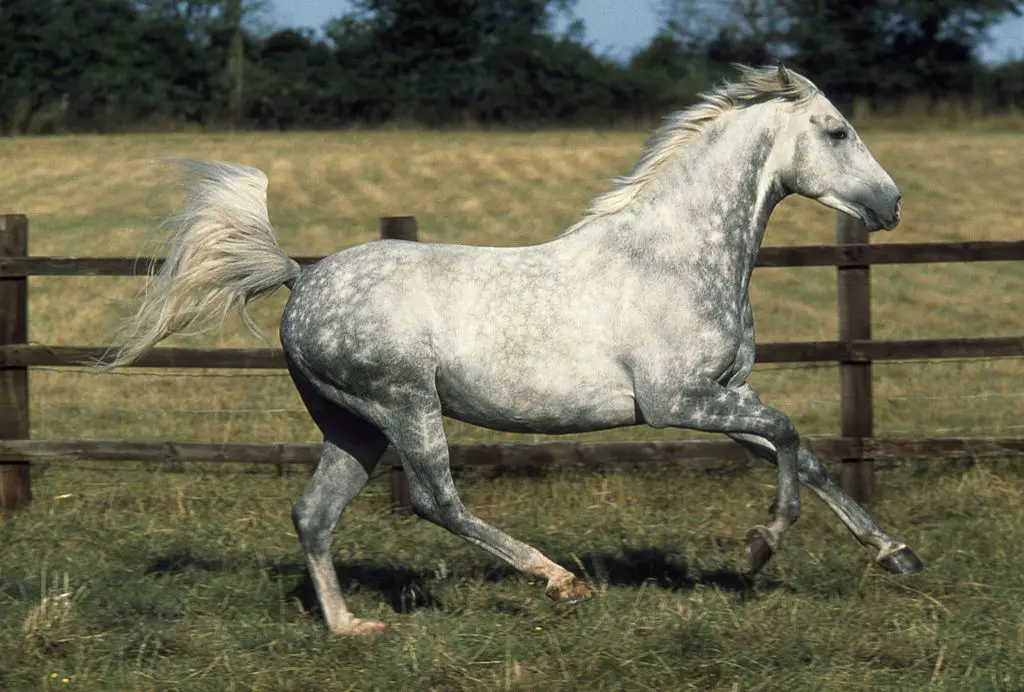
DeAgostini/Getty Images
This is a dapple grey Arab or Arabian horse. When a horse's coat is referred to as "grey," it actually means that the horse is grey or white. White horses are also called "greys." Most grey horses are born dark or even black, and then they turn white as they get older.
As they turn white, dapple "blooms" appear on their coat. The horse in this photo is probably younger in age because he still has his dapples.
This Cremello Horse Is Extremely Shiny
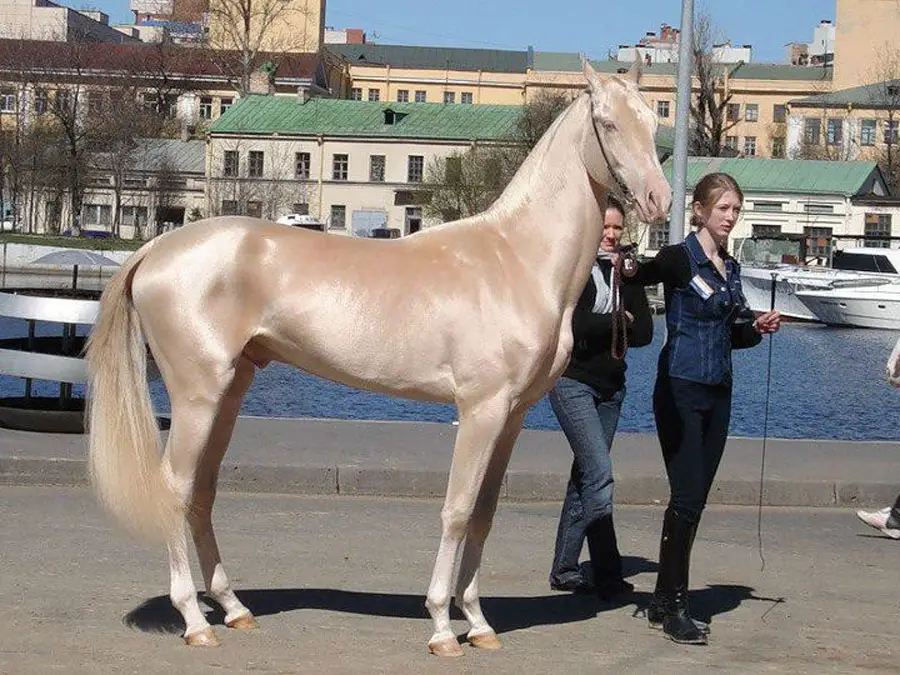
Wikimedia Commons
Horses with cremello coats usually have rosy pink skin and pale blue eyes. They are technically chestnut horses, but their coats are extremely light and pearlescent. The horse in this photo is an Akhal-Teke, which is a breed that comes from Turkmenistan. The Akhal-Teke is one of the oldest horse breeds on earth.
Cremello coats are a product of the "cream gene" in horses which results in a variety of coat colors.
Keep reading to see another horse that's the result of the cream gene.
A Dapple Grey Paint Is A Rare Sight
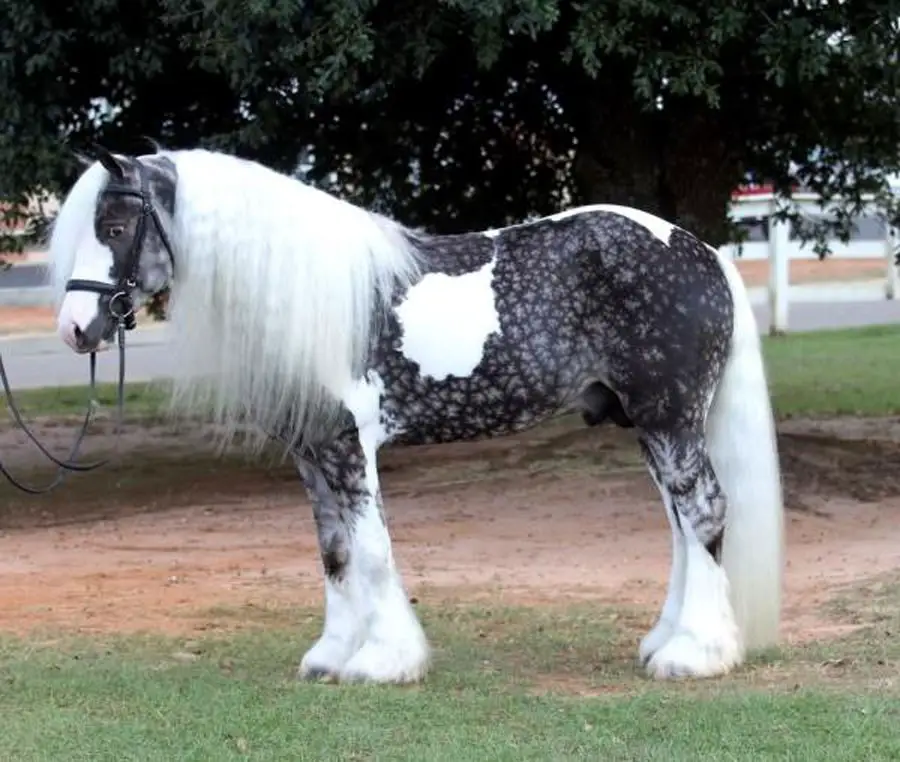
@horsefitshop / Twitter
This horse is a combination of a dapple grey and a paint. He has a paint's mottled coat pattern, but the darker patches on his coat are still dappled. This horse is likely quite young. As he gets older, the darker patches on his body might fade to white or light grey.
This horse also has feathers, which is the technical name for those long bits of fur around his feet.
The Sabino Gene Is Quite Unique

@really_animals / Twiiter
"Sabino" refers to a specific spotting pattern that appears on horses' coats. The spotting is always white and it's produced by a specific gene known as the Sabino 1 gene. There is actually a DNA test to find out if a horse is truly a sabino, or if it's just a roan. We'll see roan horses later on in this article.
Sabino horses only roan in certain areas of their skin— usually around the face and belly. Roan horses have white hairs all throughout their coats.
Palominos Are The Barbies Of The Horse World
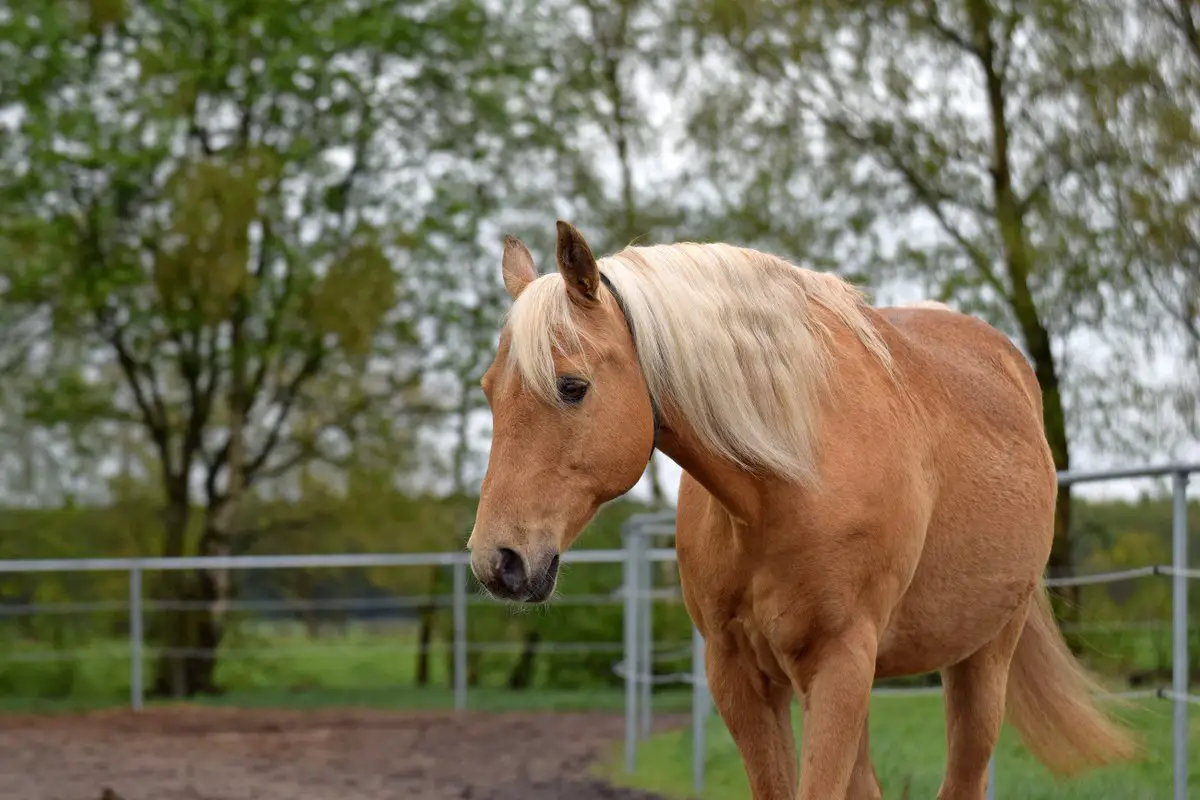
@senta_wolfsberg / Twitter
Palominos are super glamorous horses. They're characterized by a golden tan coat and a blonde or white mane and tail. Like cremellos, palominos owe their coloring to the cream gene.
Palominos are pretty rare compared to common coated horses like chestnuts and bays. The palomino coat is actually a genetic variation on a chestnut coat, but straight chestnut coats are much more common than palomino coats. Some palominos are quite dark, and some are blonder.
A Red Roan Isn't Really Red

YouTube/Top Animals TV
This beauty is a red roan quarter horse. You can tell it's a quarter horse because of its well developed muscular hind end (AKA butt). A roan is a solid colored horse that has some white hairs intermingled with its base coat.
Red roans have a chestnut base coat, but all those little white hairs can make them look almost pinkish. They still have solid brown manes and tails, though.
Read on to see the tiniest example of a unique coat.
Appaloosas Come In All Shapes And Sizes

DeAgostini/Getty Images
Appaloosas are horses with spotted coats. Like roans, Appaloosas are a combination of a common base coat color and the color of their spots. Darker appaloosas have white spots and lighter appaloosas have dark spots.
Appaloosa horses also usually have really bright eyes. The whites of their eyes, or their scleras, are visible, which is unique for horses. Appaloosas also have striped hooves, which is a result of their spotted pigmentation extending past their legs.
These Horses Are Called Leopard Appaloosas For A Reason

Cuveland/ullstein bild via Getty Images
As we already know, appaloosa horses come in all different shapes and sizes. These are leopard appaloosas. Leopard appaloosas are white horses with dark spots that cover their entire bodies.
Like most other appaloosas, they have prominent scleras, which means you can see the white part of their eyes when their eyes are open and at rest. These appaloosas also have mottled manes and tails. They kind of look like overgrown dalmatians.
This next horse is unbelievably adorable!
The Tiniest Appaloosa In The Land

@naturelover_s / Twitter
This is a mini horse. Mini horses are even smaller than the smallest breeds of ponies. By the way, for all of you horse newbs out there, ponies are not baby horses. A pony is a horse that is under 14 hands. "Hands" is a measurement specifically used for horses. One hand is four inches, and a horse's height is measured from the floor to its withers, which is the spot where their neck meets their back.
This mini horse is a blanket appaloosa, which is kind of like a leopard appaloosa except the appaloosa coloring only covers a "blanket" of fur over the horse's rear end.
Read on to see a horse that's striped rather than spotted.
This Perlino Is Enjoying The Sun A Bit Too Much
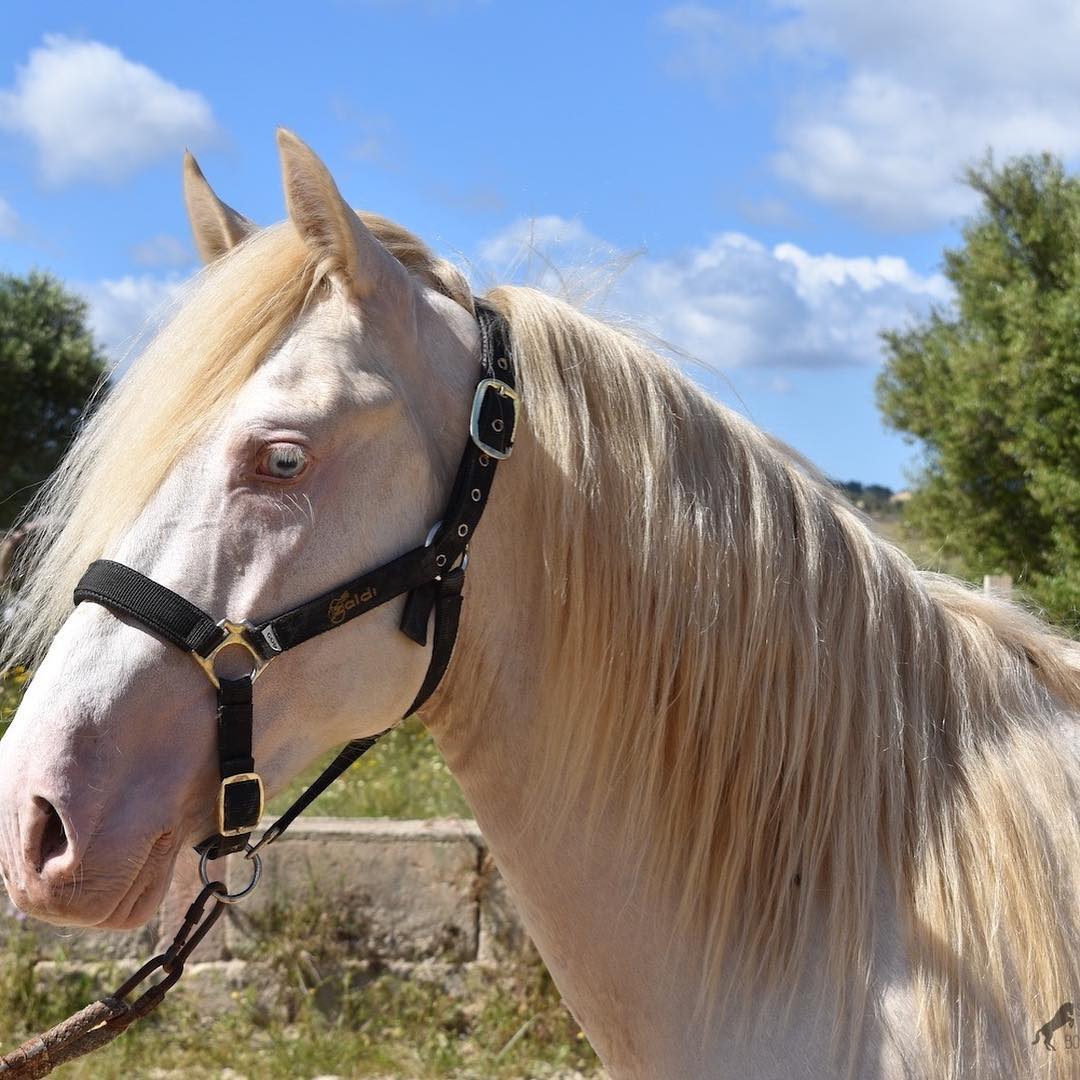
@spanishhorseboutique / Instagram
This horse has a perlino coat, which is another way the cream gene manifests itself in horses. Perlinos are homozygous cream bays. They have a bay base coat that's been mutated by the cream gene. Bay horses have brown bodies with black manes and tails, but perlinos have cream-colored bodies with more reddish manes and tails.
It can be hard to tell all of the cream colored horses apart from each other, which is why a DNA test is sometimes necessary.
Flaxen Manes Always Stand Out

@lindakjelland / Instagram
Horses with flaxen manes have manes and tails that are lighter in color than their bodies. This horse has a chestnut coat, a flaxen mane and tail, and a stripe on his face.
A "stripe" is a white face marking on a horse that extends down its nose. This horse has a star and a stripe that are connected. A "star" is a white face marking that appears as a dot on a horse's forehead.
Brindle Is Better
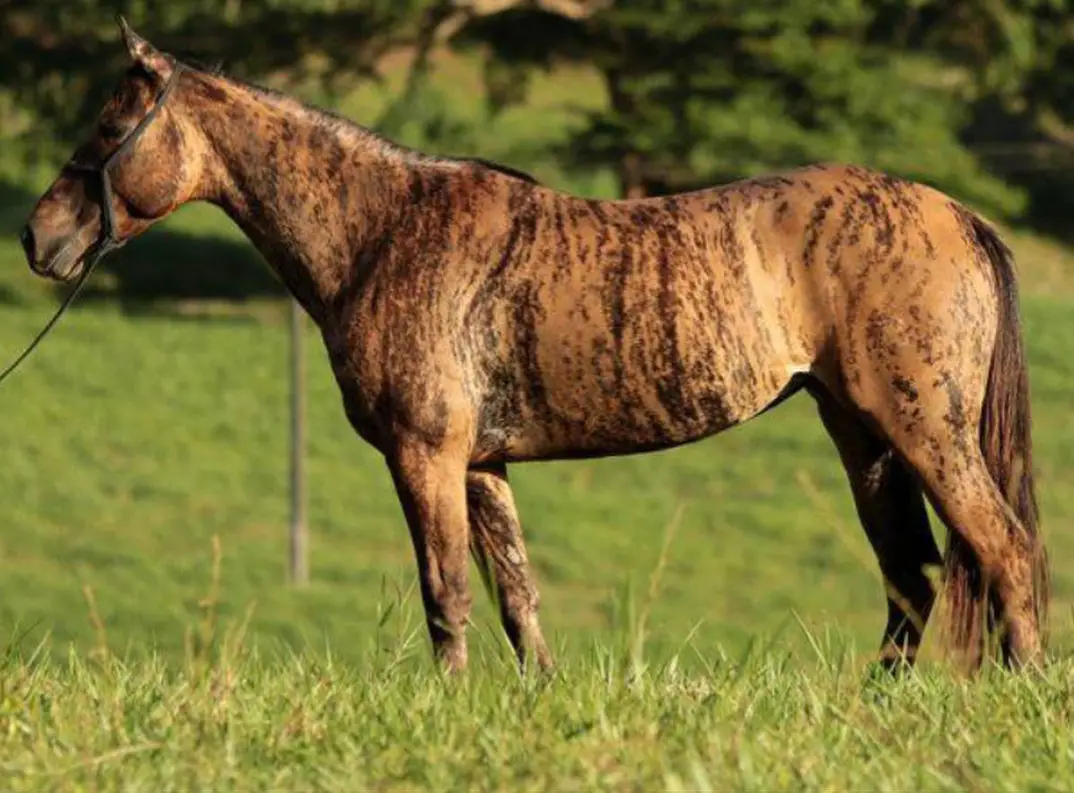
@alabama_equine / Instagram
This is a horse with a brindled coat. Brindle horses are quite rare — much rarer than their spotted appaloosa friends. The brindle pattern (which appears as stripes on an animal's coat) is mostly found on dogs, cattle, and guinea pigs.
Horses can inherit the gene that causes a brindled coat on rare occasions. This pattern is sometimes called tiger striping for obvious reasons. This horse kind of looks like a tall tiger.
Keep reading to see a horse that looks like it's been dipped in paint.
Champagne Horses Are As Expensive As Their Name Suggests
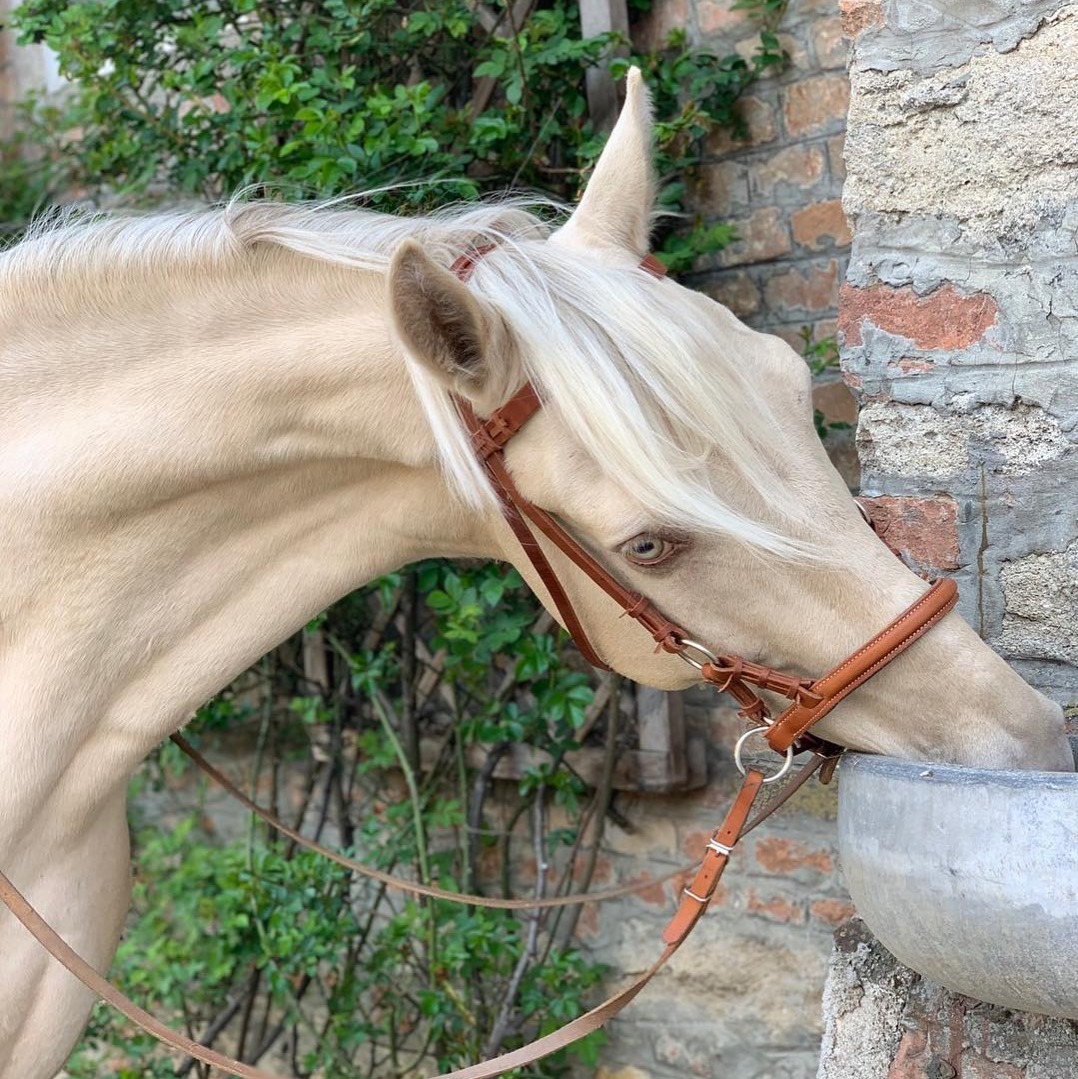
@rosegolden_lusitano / Instagram
This is a gold champagne horse. The champagne gene affects a horse's skin rather than its coat. Chestnut horses with the champagne gene almost look blonde because of their light skin. Most horses have dark or black skin, except in areas where they have white markings due to a lack of pigmentation.
If you look closely at this horse's ears you can see that her skin is actually pink all over.
This Paint Horse Looks Like It Was Dipped In Paint
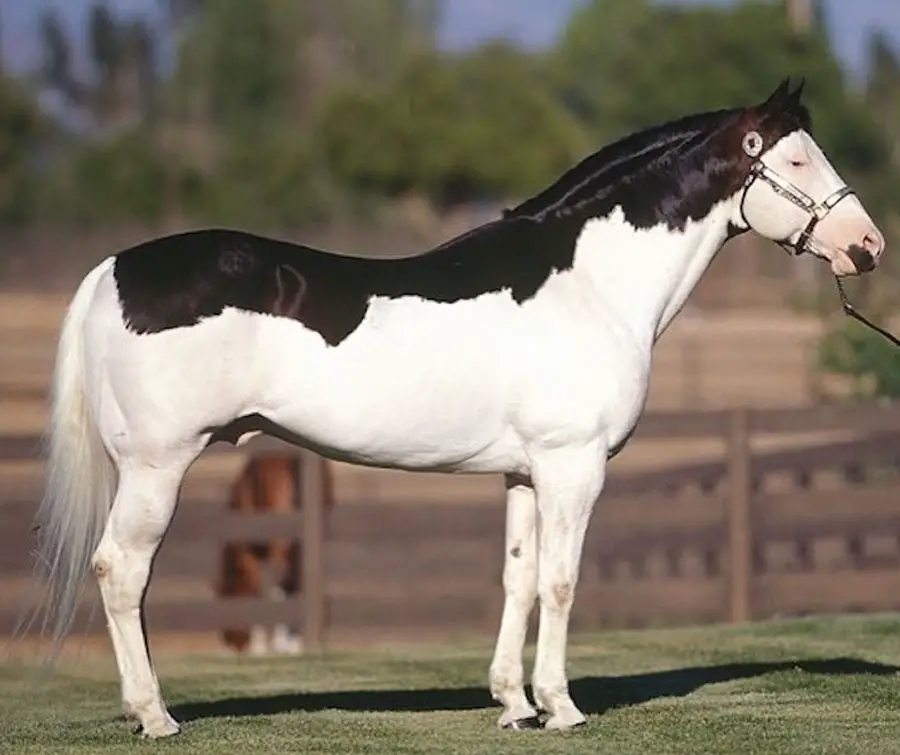
@horse.colors / Instagram
This horse is a paint, just like the one we saw earlier, only he has some pretty special patterning along his back. Instead of having several brown patches along his right side, he has one large brown patch on his back. His bottom half is completely white — at least, it's completely white on this side of his body. He also has a small brown patch on his muzzle.
This horse almost looks like two horses combined into one!
This Rabicano Knows She's Special
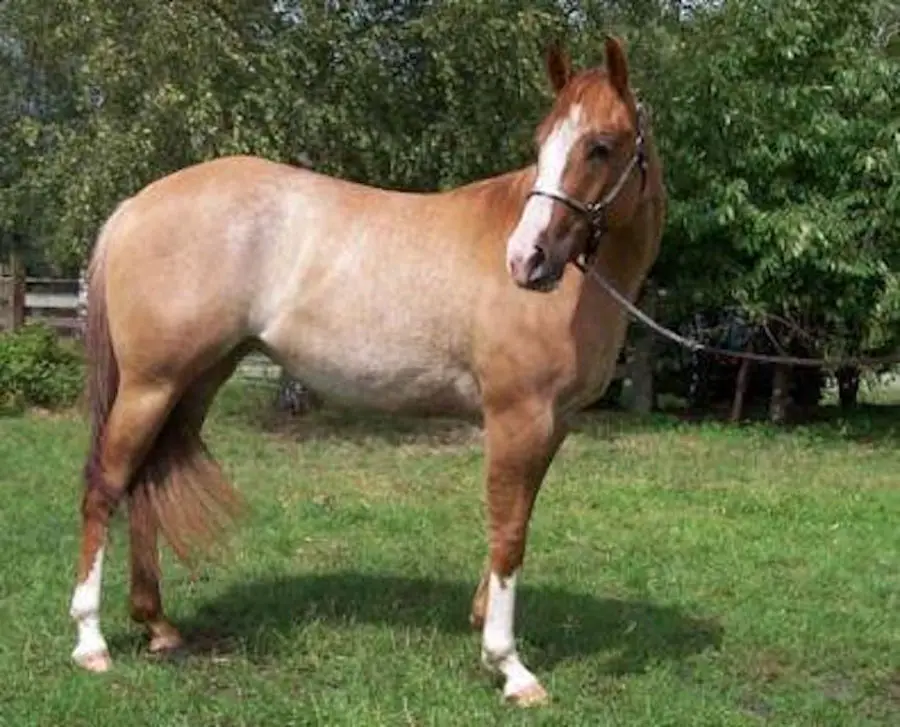
@StacyMichelleB / Twitter
Horses with roaning around the top of their tails and around their flanks are known as rabicanos. Sometimes this pattern is called "white tickling." Rabicanos aren't true roans because those little white hairs are restricted to certain areas of their body.
Most rabicanos have two-toned tails. Those white hairs extend down the tail to create a tail that's white on top and brown on the bottom. The word "rabicano" is of Spanish origin. "Rabo" means tail and "cano" means white in Spanish.
Read on for a horse that has its name written right on its skin.
This Silver Buckskin Looks Almost Ghostly
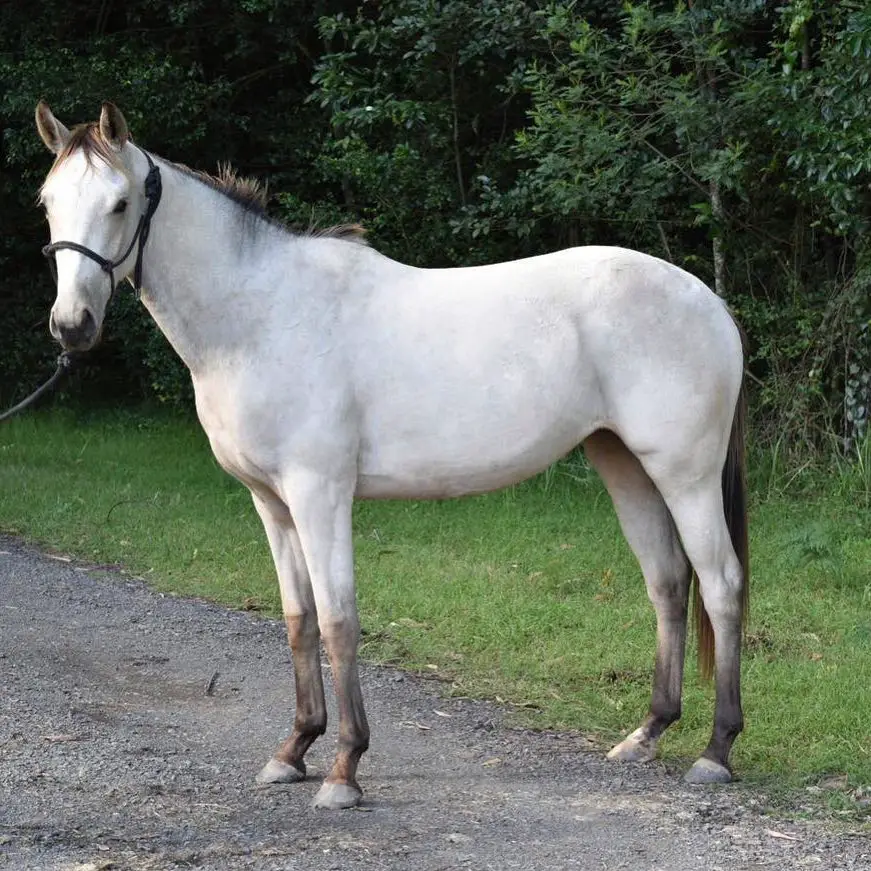
@thehorsetranslator / Instagram
A buckskin horse is a horse with a tan body and a black mane and tail. A silver buckskin has a rare mutation of the silver dapple gene. They have grey bodies with black manes and tails.
This horse has darker legs, which is also characteristic of normal buckskins. Traditional buckskin horses with tan bodies also have darker black socks or stockings, which are names for the markings on a horse's legs.
This Blue Roan Is Enjoying Her Lunch
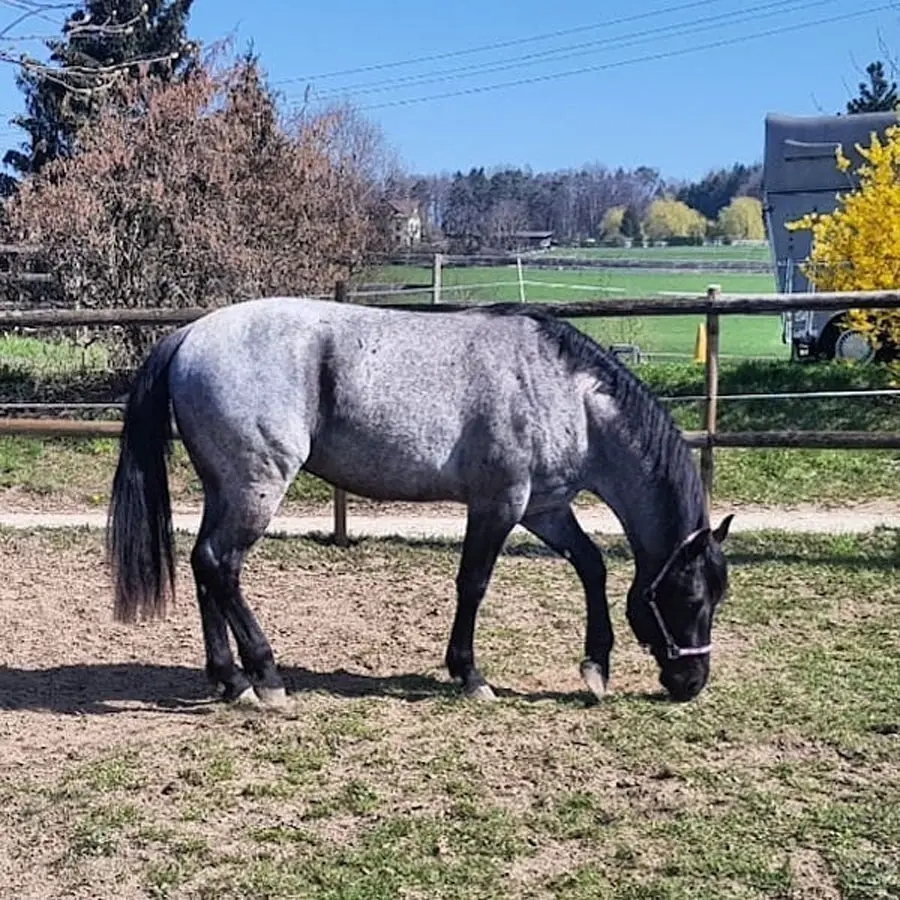
@horseloverus24 / Instagram
A blue roan is similar to a red roan, except instead of having a chestnut base coat, it has a black base coat. That base coat is interspersed with a bunch of little white hairs. The hairs usually don't extend into the mane and tail, though.
This blue roan has a black mane and tail, but sometimes blue roans have reddish manes and tails. The white hairs in their coats sometimes can make them look blue in certain lighting.
A Stroke Of Genius
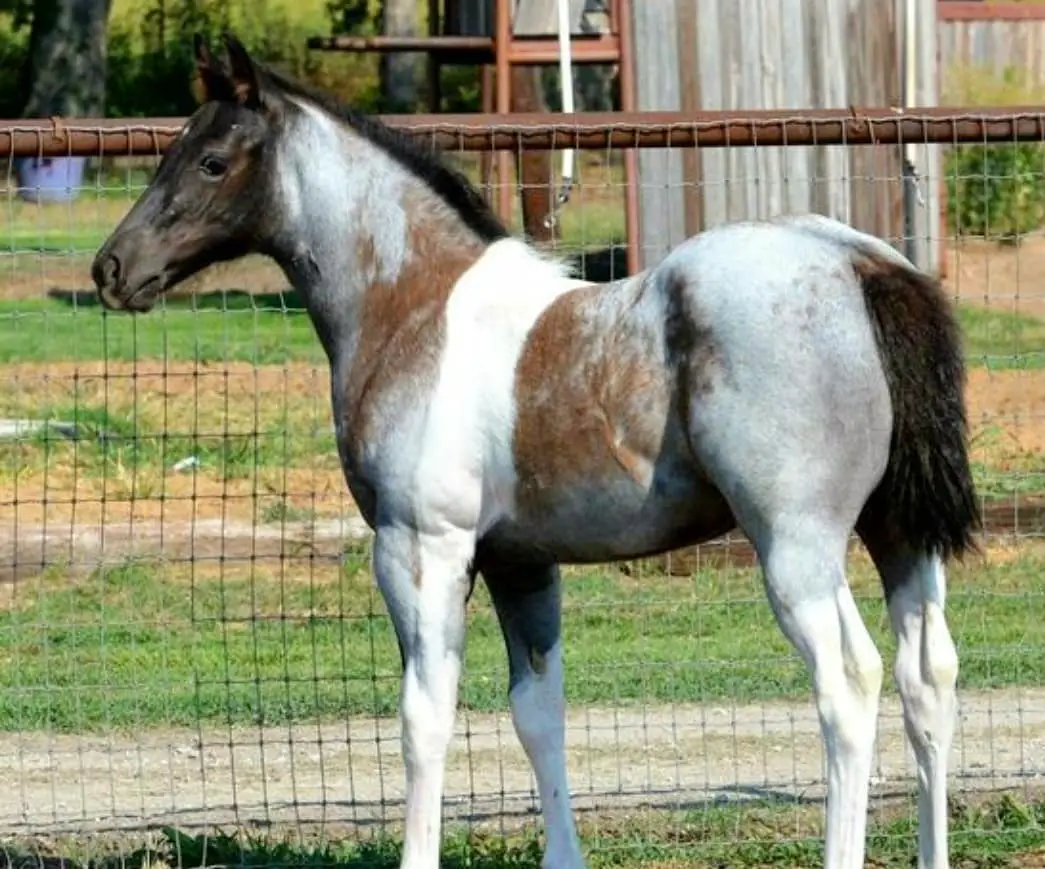
@sso.coats / Instagram
This little foal looks like a combination of a blue roan, a red roan, a grey, and a paint. It's almost like having four horses in one. That white stripe along its withers makes it look like someone took a paintbrush dipped in white paint and just painted one stroke from the ground, up the horse's leg over its withers.
Horses that look like this are extremely rare. This little foal is truly one of a kind.
A Horse That Says It's A Horse
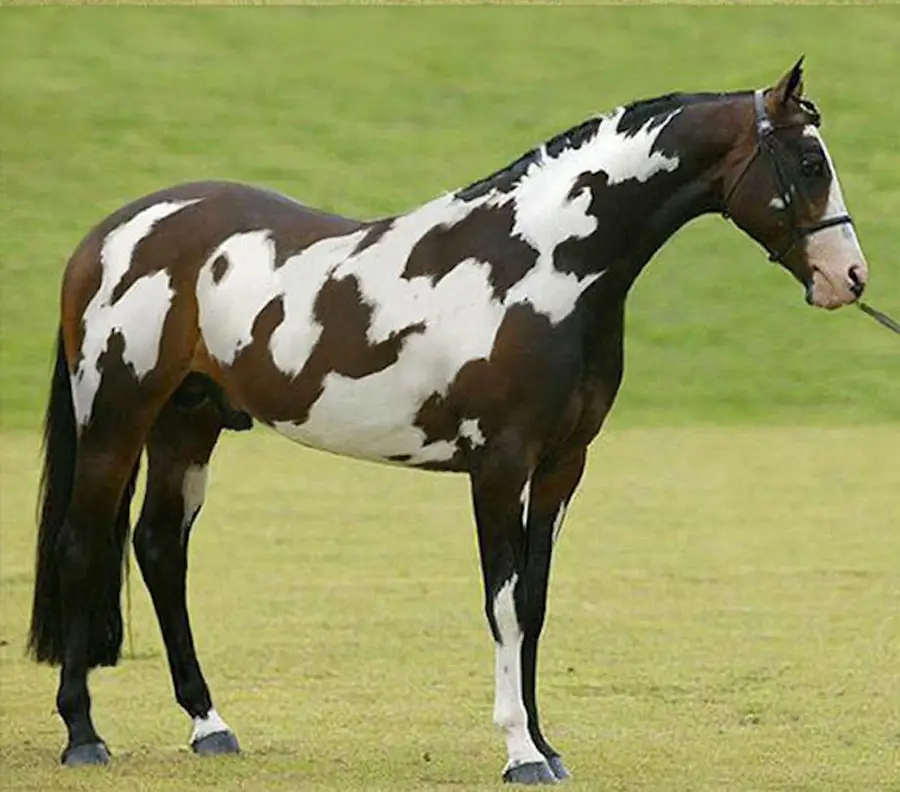
@unique-horse-colors / Instagram
If you look closely at this horse's body, you can see that the white patches along his side actually come together to form the letters in the word "horse." The lower case "h" is on his hind end, and the upper case "e" is on his neck.
Sometimes people can find neat shapes in a paint's patches, but this might be the first time anybody's found the entire word "horse" on a horse!
Classic Champagne

Pinterest
We talked about one champagne breed earlier now here is a different one. This is the Classic Champagne breed of horse. Its genes change the dark hue and make its skin appear lighter.
This horse you see here is a great example of that. The black coat she would normally have looks more like a soft brown. If you're getting one of these breeds, be sure to know what to look for out there!
Liver Chestnut

Pinterest
For a horse, the name Liver Chestnut isn't all that appealing. What is nice about them is how beautiful their coats are! They are dark brown horses with a lighter mane and tail too.
This gorgeous guy has a blonde tail, which is a bit lighter than its mane. Having one of these in your stalls would be great because you'll always have an interesting looking horse to ride or help with any type of errands.
Bay Overo Paint

Pinterest
Horses with interesting coat patterns never cease to amaze us. What we have here is the Bay Overo. The white on it starts at the belly but rarely crosses over to the back of the horse.
That's fine with us because the uniqueness of it is clear already at first glance and from any angle. We wonder if other horses get jealous of the breeds like this because they have one set color instead of a few.
Strawberry Roan Paint
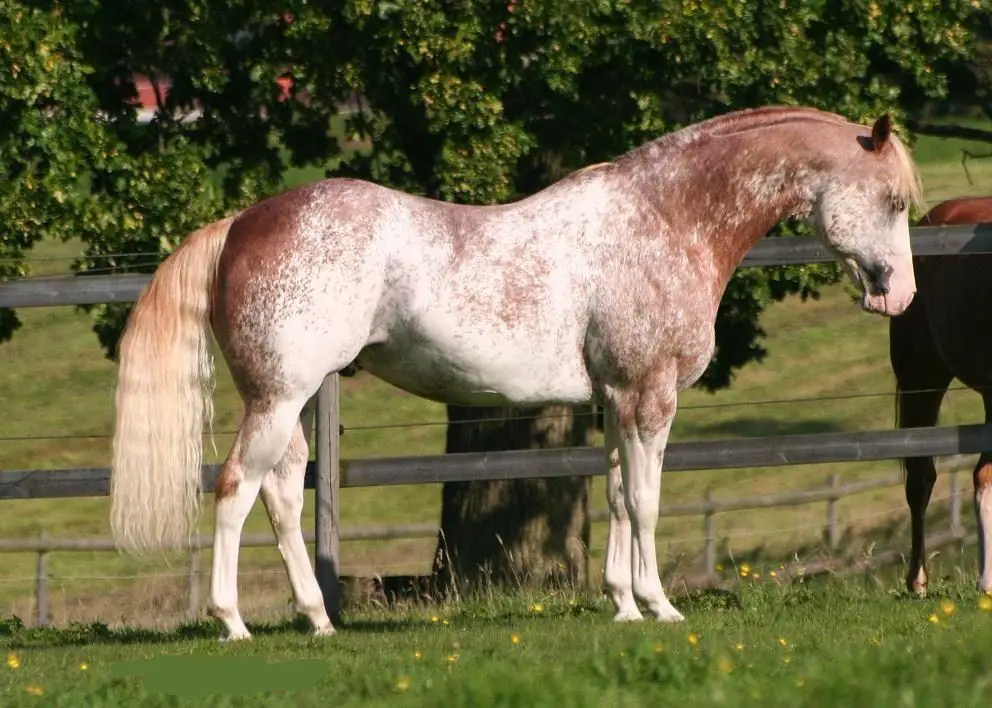
Pinterest
How many roans are there, you ask? The answer to that is irrelevant because they are all so beautiful, especially this Strawberry Roan Paint breed. It looks like the horse version of the Strawberry Shortcake ice cream that you can buy at the store.
The markings on the Roan mix with white splashes which make for an elegant touch. Imagine riding one of these in the open valley with a few other horses galloping with you.
Silver Dapple Sooty Buckskin

Pinterest
Have you ever encountered a Silver Dapple Sooty Buckskin horse before? They have some of the prettiest coats you've ever seen and we love it. They are a combination of three different gene elements.
The different genes make up several variations of beautiful colors. They carry dark coats with lighter spots throughout. Their tails are dark and pretty much the same color as their manes. If you see one, you'll it's a Silver Dapple Sooty Buckskin
Grullo Dun
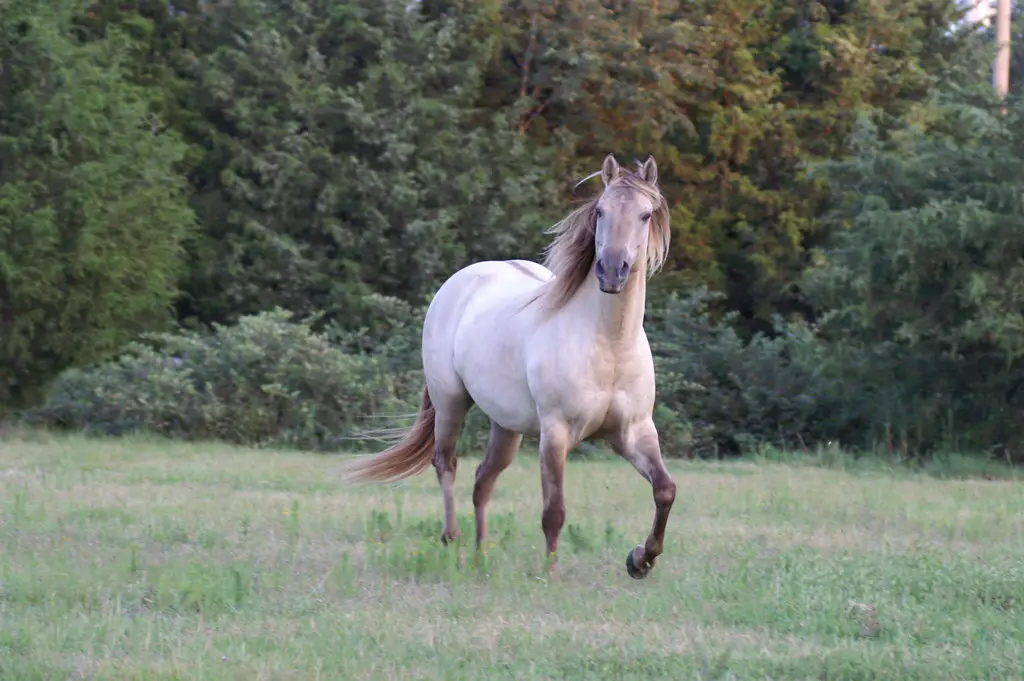
Pinterest
The Grullo Dun is one of those horses that you look at and instantly fall in love with if you're a horse person. They are known for their tan-gray coats that have a silvery sheen.
They sometimes have a dark mane and tail with striped legs and back too. The color scheme makes it interesting because not many horses have this color pattern. Now, if you see a tan-gray horse trotting around, you'll have a better idea of what it is.
These coats might have been super unique and beautiful, but have you ever wondered what the most expensive breeds are?...
Arabian Horse

Adam Guz/Getty Images Poland/Getty Images
The Arabian horse just might be the most expensive horse breed in the world. Not only that, but it is also one of the oldest breeds there is. The prestige surrounding this horse came about in the '80s.
Arabian horses became somewhat of a status symbol in the '80s. They were likened to fine art in America as well, so when you account for all of that you can see why they are arguably the most expensive.
Thoroughbred

CHARLY TRIBALLEAU/AFP/Getty Images
We have England to thank for the Thoroughbred. They developed this breed for horse racing and what a brilliant idea that was. They have short legs which come in handy for long and easy strides, just ask a runner.
Other than the short legs, they also have wide chests, slender bodies, and shorter backs than many other horses. The Thoroughbred is very sensitive and has tremendous speed and stamina. If you're betting, then it might be wise to put your money on them.
Quarter Horse

Arterra/UIG via Getty Images
If you had to guess what the most popular breed in the U.S. is, what would you say? The answer isn't a pony, but rather a Quarter Horse. They got their name from being able to outrun other horses in a quarter mile race.
Something else they are good at is rodeo events. Throw them in calf roping, barrel racing, and team roping and you'll be sure to see a good show (don't blame us if you don't).
Paint Horse
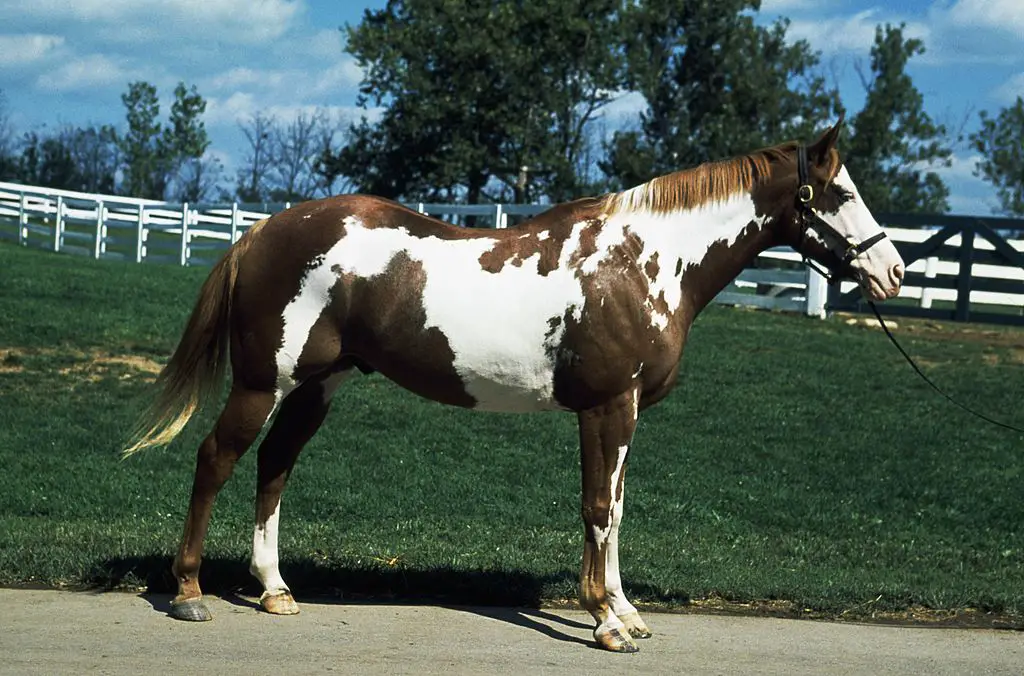
DeAgostini/Getty Images
Coming in hot is the American Paint Horse. We already briefly talked about them earlier, but lets dive in a bit further, shall we? These guys are distinct thanks to their unique color patterns.
It combines white blotches with more of the traditional horse colors such as black or brown. They are made with quarter horses and thoroughbreds so they have some pretty decent genes! We aren't sure if they are fast in races, but their signature colors is what makes them valuable.
Mustang
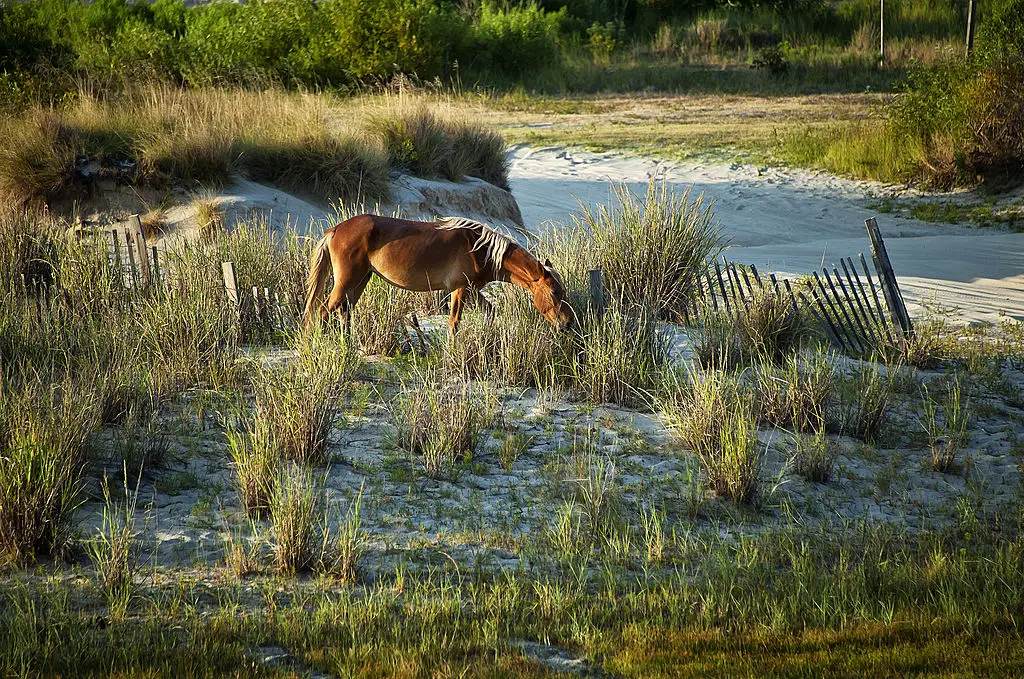
John Greim/LightRocket via Getty Images
Everyone knows about the Mustang vehicle, but are the animal counterparts accounted for too? A Mustang is the Iberian or Spanish breed that got introduced to America. These are some of the most reliable horses for many reasons.
Mustangs are known for their stability and intelligence so north Americans use them in a number of ways. Their long life spans also make for a great perk. The longer you have the horse the more value it has!
Friesian
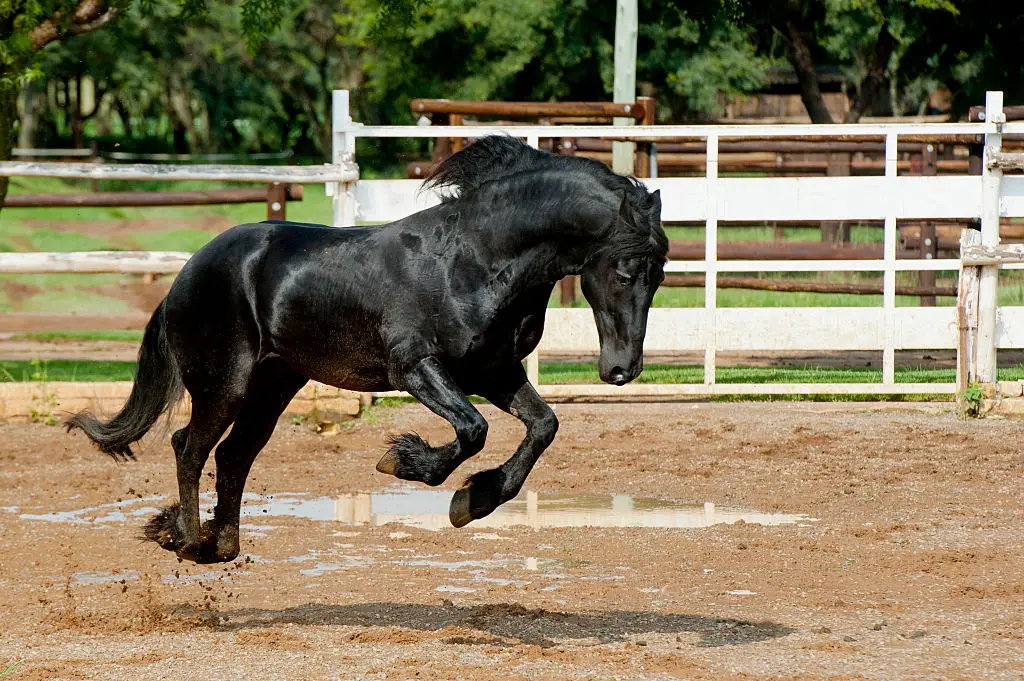
Herman Verwey/Foto24/Gallo Images/Getty Images
No, these horses do not like to eat french fries despite "fries" being the start of their name. Friesian breeds are native of Friesland so that explains that. They are known for their intelligence and keenness.
When it's time for war, these were and are the horse of choice due to their able body and paired with their speed. On top of all that, the Friesian is also very graceful making their worth extremely high.
Appaloosa
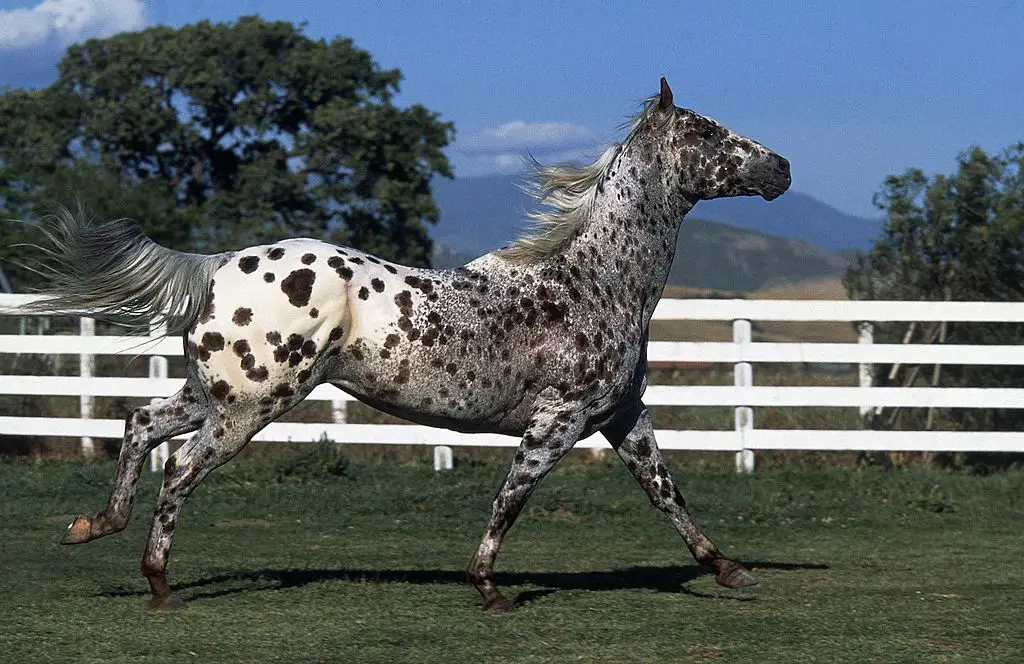
DeAgostini/Getty Images
The Appaloosa horse is very beautiful. The spotted breed is known for its strong legs which in turn makes them very powerful runners. When a horse is a great runner that automatically raises its value through the roof.
They have high intelligence so they learn easier than most. The Appaloosa also lives on minimum food so maintenance isn't so expensive. Everything about them makes them super valuable and of course, they are loving creatures above everything else.
Shetland Pony
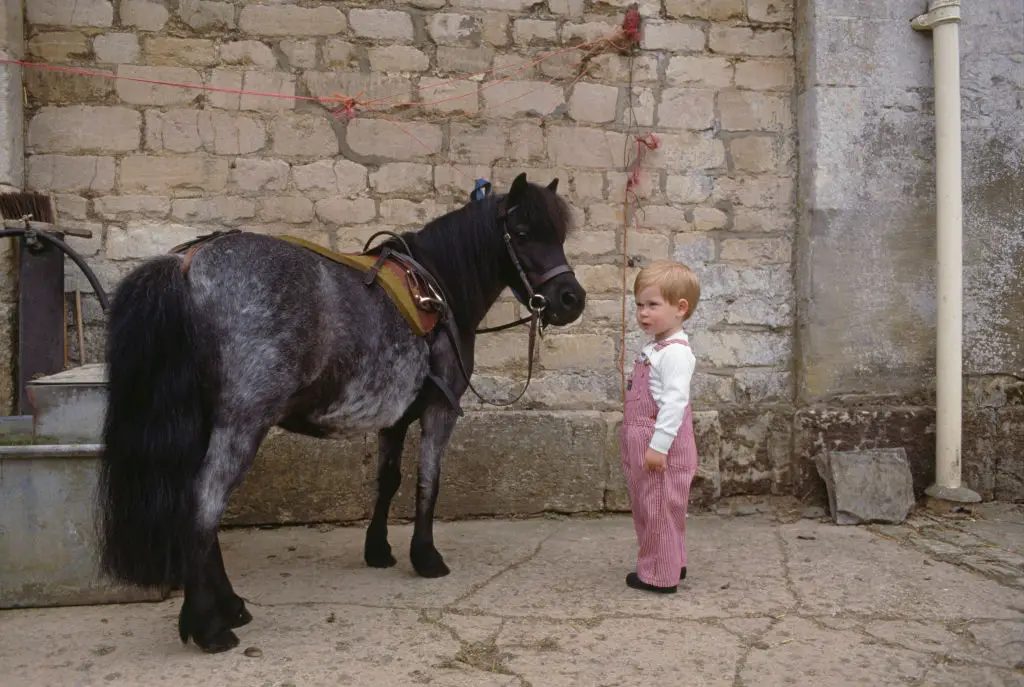
Tim Graham/Getty Images
Who doesn't love a pony?! They're natures gift to the world if you ask us. Shetland Ponies are sweet, but are known for their bad temperament. That means if you aren't only showing it love, then you can expect a little attitude to ooze out.
Their temper are dependent on their day. Besides that, these ponies are excellent for training so young and beginner riders should start off on them to get a better experience.
Gypsy Vanner

Lyn Alweis/The Denver Post via Getty Images
Have you ever seen a horse make a graceful jump? If not, then you should see a Gypsy Vanner leap. The Gypsy Vanner is known for its jumping ability. They are able to hop over a four-foot fence with little to no effort.
Naturally, they are used in jumping competitions because of this. One of their most loving qualities is that they are sweet and friendly with the family. All that boils down to is that they are safe to own and worth a lot.
Clydesdale
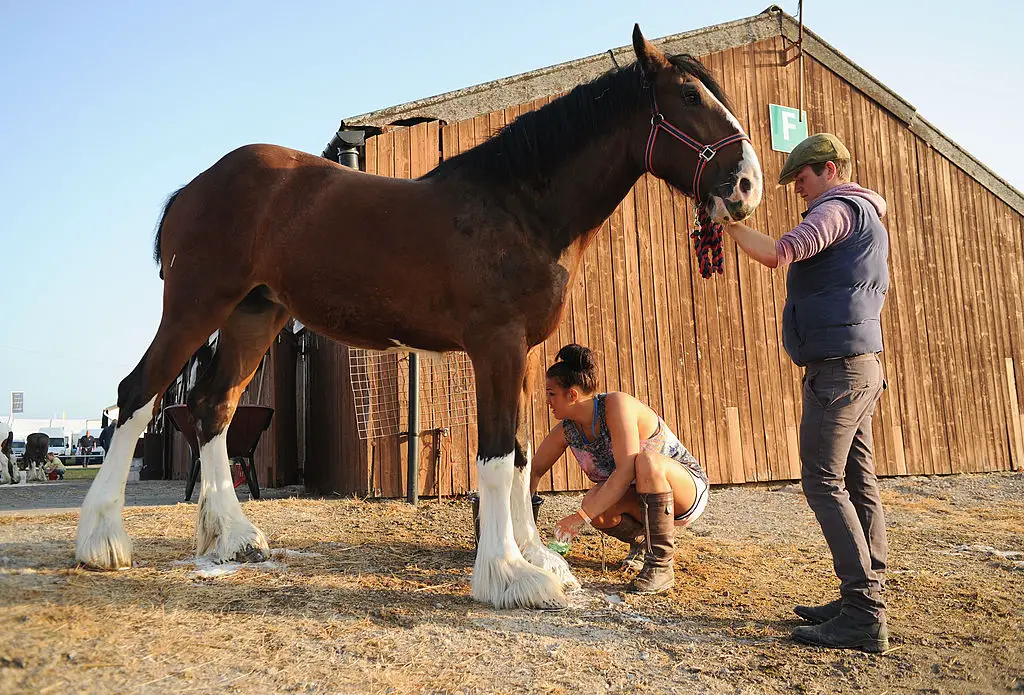
Ian Forsyth/Getty Images
The Clydesdale is the type of horse for those who just want to own a horse for fun. If you aren't looking to have it compete or do special tasks, then the Clydesdale is the horse for you.
They are graceful, look good, and co-operate well. On top of that, they are very easy to train. They pretty much have everything that makes for a good pet so they are excellent gifts to anyone looking to own a horse.
Morgan
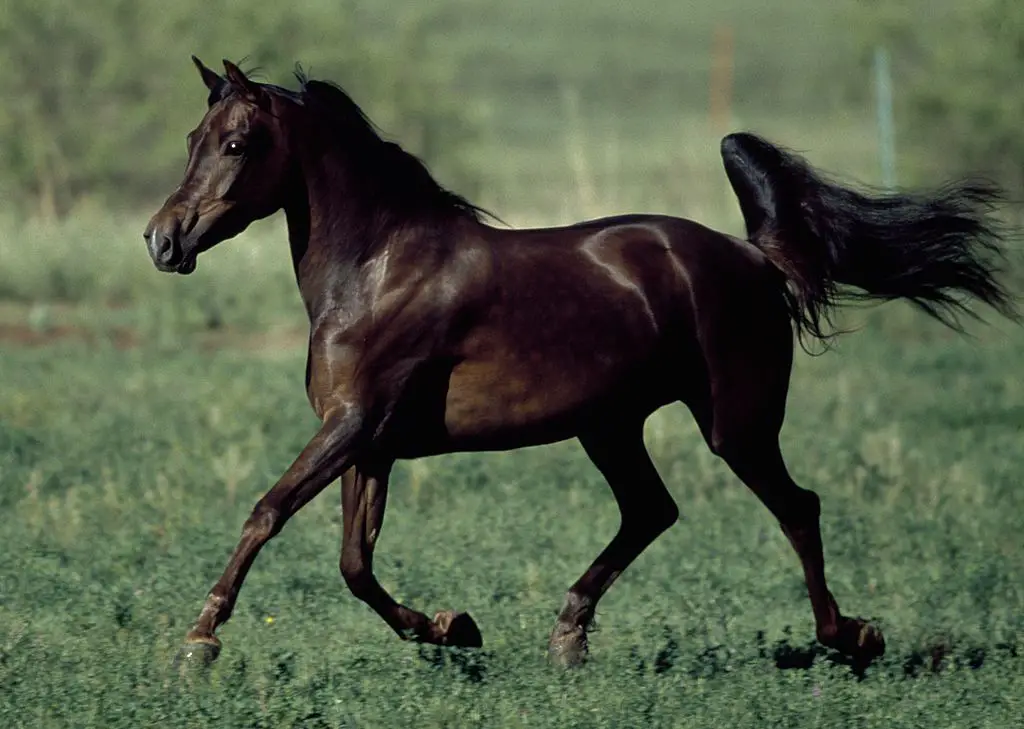
DeAgostini/Getty Images
How would you like a horse to do your tasks for you? Well, that's one of the main purposes for Morgan breeds. They are a great choice for those who want their horse to do errands for them.
They are capable of pulling heavy weight, you can ride them, their jumping ability is great, and they have an amazing sense of direction. Packed with style and grace, these breeds are valuable and amazing to own.
Standard Bred

Pinterest/tcchamber
Yes, we know there are ton of horse breeds, but each one packs their own set of characteristics that make for an interesting horse. Take for example, the Standard Bred. They are high quality horses and have amazing cooperation skills.
These breeds are fantastic for beginner owners and those who wish to raise up the perfect horse (as if they aren't already perfect). If all of that wasn't already enough to convince, just look at how gorgeous they are!
Dutch Warmblood
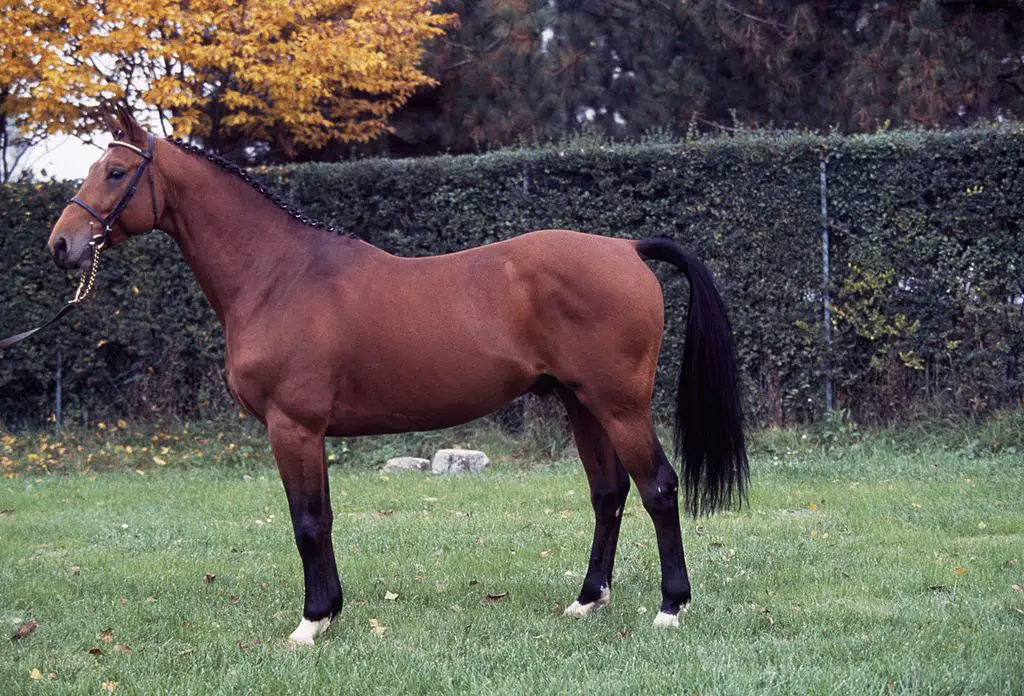
DeAgostini/Getty Images
What's a better name than Dutch Warmblood? Nothing, that's whats better. These breeds are amazing for various reasons outside of their super nice names. The warmblood can jump with the best of them, because that's all they were bred for.
Their beautifully big bodies are conducive for great leaping abilities. They also have a nice temperament unlike a certain pony we learned about earlier. A jumper who doesn't get sassy with you sounds great to us.
Andalusian
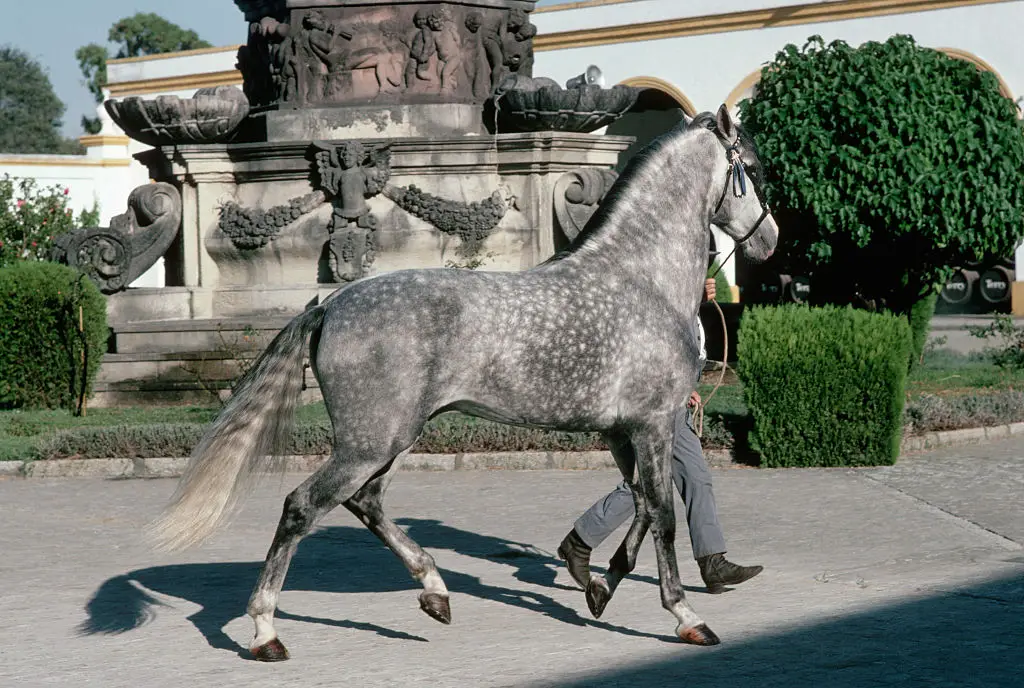
Ted Streshinsky/CORBIS/Corbis via Getty Images
Say hello to the Andalusian breed. This horse is one of the oldest in the world and are very easy to train. Maybe that's due to their smarts or because they're ancestors have been around for so long its all in their DNA.
The good looking horse has a high stamina, they are elegant, majestic, and hardworking. What's not to love about all of that? The only thing about them is that come with a high price tag, but if you can afford it then go for it!